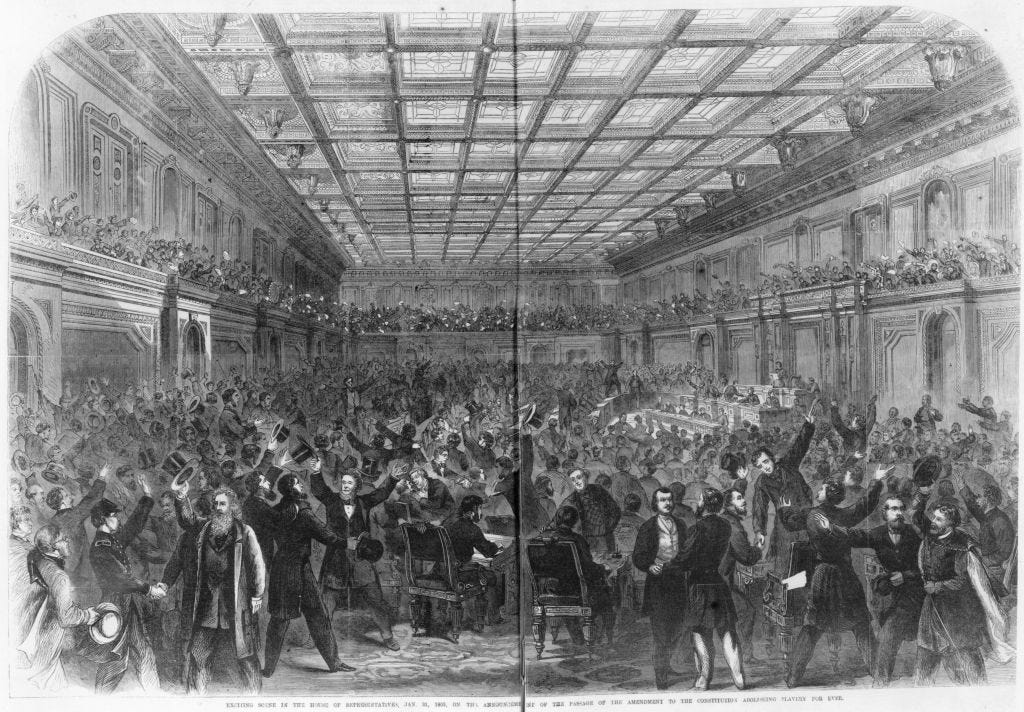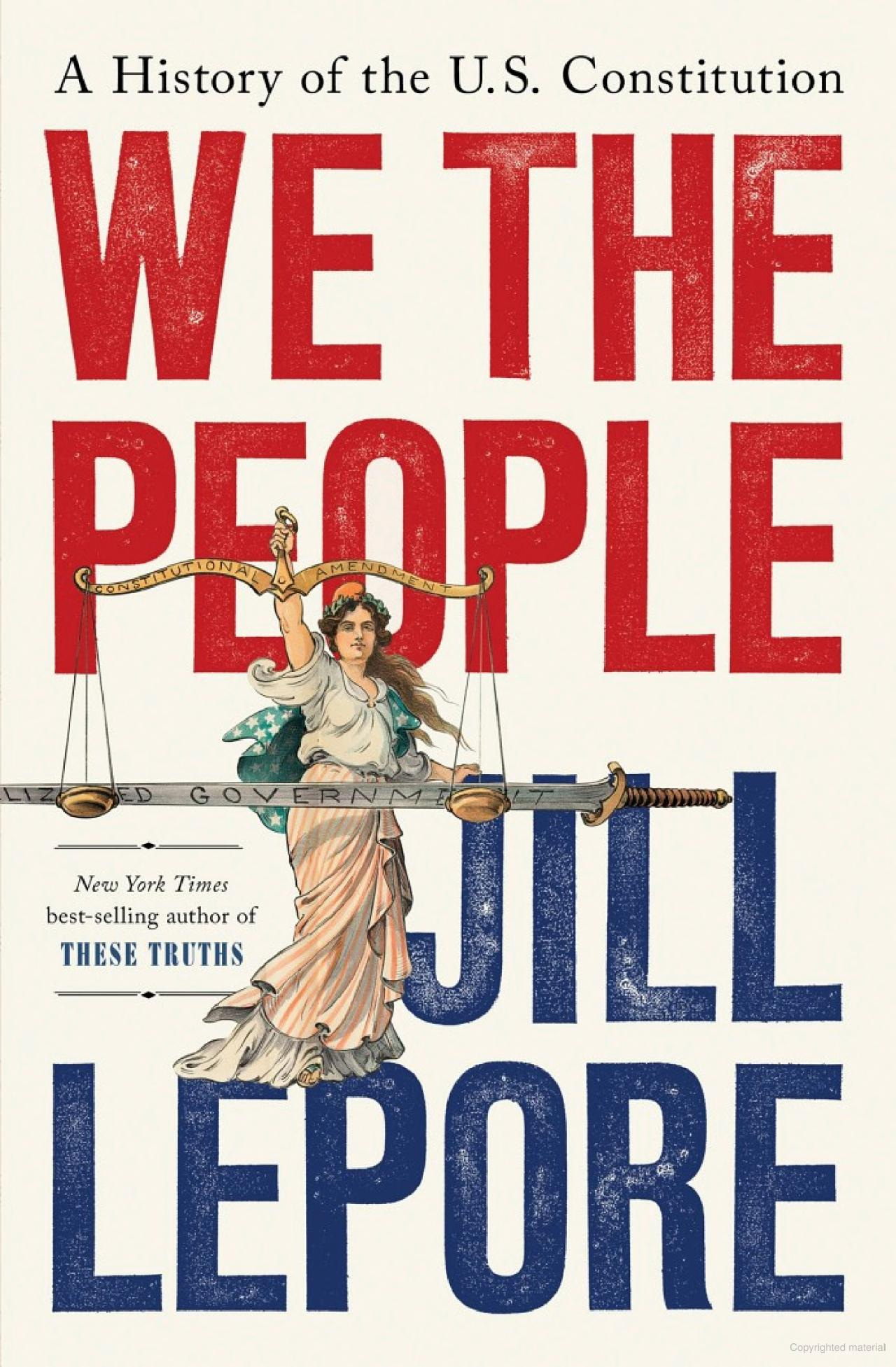Will we ever wake the “sleeping giant”?
Can the Constitution’s powers of change be revived? We’ll discuss with historian Jill Lepore in round two of our Book Club conversation
Today at 12:30 p.m. Eastern, join us live for our second Ink Book Club discussion with historian Jill Lepore, author of We the People: A History of the U.S. Constitution. Watch on desktop at The Ink or on a phone or tablet using the Substack app.
On January 31, 1865, the U.S. House of Representatives passed the 13th Amendment, abolishing slavery. President Lincoln had strategized and pressed for it, and as historian Michael Vorenberg wrote in his book, Final Freedom: The Civil War, The Abolition of Slavery, and the Thirteenth Amendment, appeals to pass the amendment erupted from all quarters: constituents, legislators, and “popular conventions.”
In a packed chamber on the day of the vote — which passed by 119-56, with slightly more than the two-thirds majority required — David Homer Betes, a federal employee who was a witness to the scene, recounted that “The people rose as if an electric shock had struck them and cheer after cheer rent the air.” Among those cheering was Frederick Douglass’s son, Charles. One of the legislators who voted for the amendment is said to have told his wife: “We can now look other nations in the face without shame.”
Today, it’s difficult to imagine how it was possible for people with often wildly conflicting agendas to join together — as the founders of the United States did in the 18th and 19th centuries — to debate, ideate, brainstorm, tweak, advocate, and compromise to produce the U.S. Constitution and the crucial amendments that followed. It’s hard to imagine today’s Congress agreeing on anything — even on the basic question of whether it should govern. Can that spirit — which set the country on its course and then refounded it again in the Reconstruction Amendments — be recaptured?
Later today, in our second Ink Book Club conversation with historian Jill Lepore, author of We the People: A History of the U.S. Constitution, we’ll explore how that momentous vote came about, and why in modern times such pivotal social change has so rarely been made through Constitutional amendment. In Lepore’s view, in abandoning amendment, Congress has ceded its power to maintain the machinery of government to keep pace with the times, leaving substantive change to the Supreme Court and the executive branch. But Article V of the Constitution, which defines the power of amendment, remains a “sleeping giant,” ready to awaken, should the people’s representatives reclaim it.
We’ll talk about all this and more when we meet again with Jill Lepore today, Wednesday, October 22, at 12:30 p.m. Eastern. We hope you’ll join us!
What questions do you want us to pose to Jill Lepore? Many of you have written that you want Lepore to elaborate more on our first conversation: specifically to explore further how she thinks the rhetorical excesses on the left have fueled the MAGA movement, and why she believes our system of higher education is also at fault. But we want to hear from you, Book Club members, so drop your questions in the comments below.
And on a totally unrelated topic, Lisa Simpson and her dad, Homer, are Thomas Pynchon fans. Are you? Have you picked up his latest, Shadow Ticket, or are you still contemplating climbing the Pynchon literary mountain? Were you inspired by the film One Battle After Another, director Paul Thomas Anderson’s adaptation of Vineland? Maybe you paused at Gravity’s Rainbow and never picked up the thread? In any case, the new one has hit the New York Times bestseller list, and we’re wondering what you make of the works of the great chronicler of American political paranoia.
The Ink Book Club is open to all paid subscribers to The Ink. If you haven’t yet become part of our community, join today. And if you’re already a member, consider giving a gift or group subscription.





